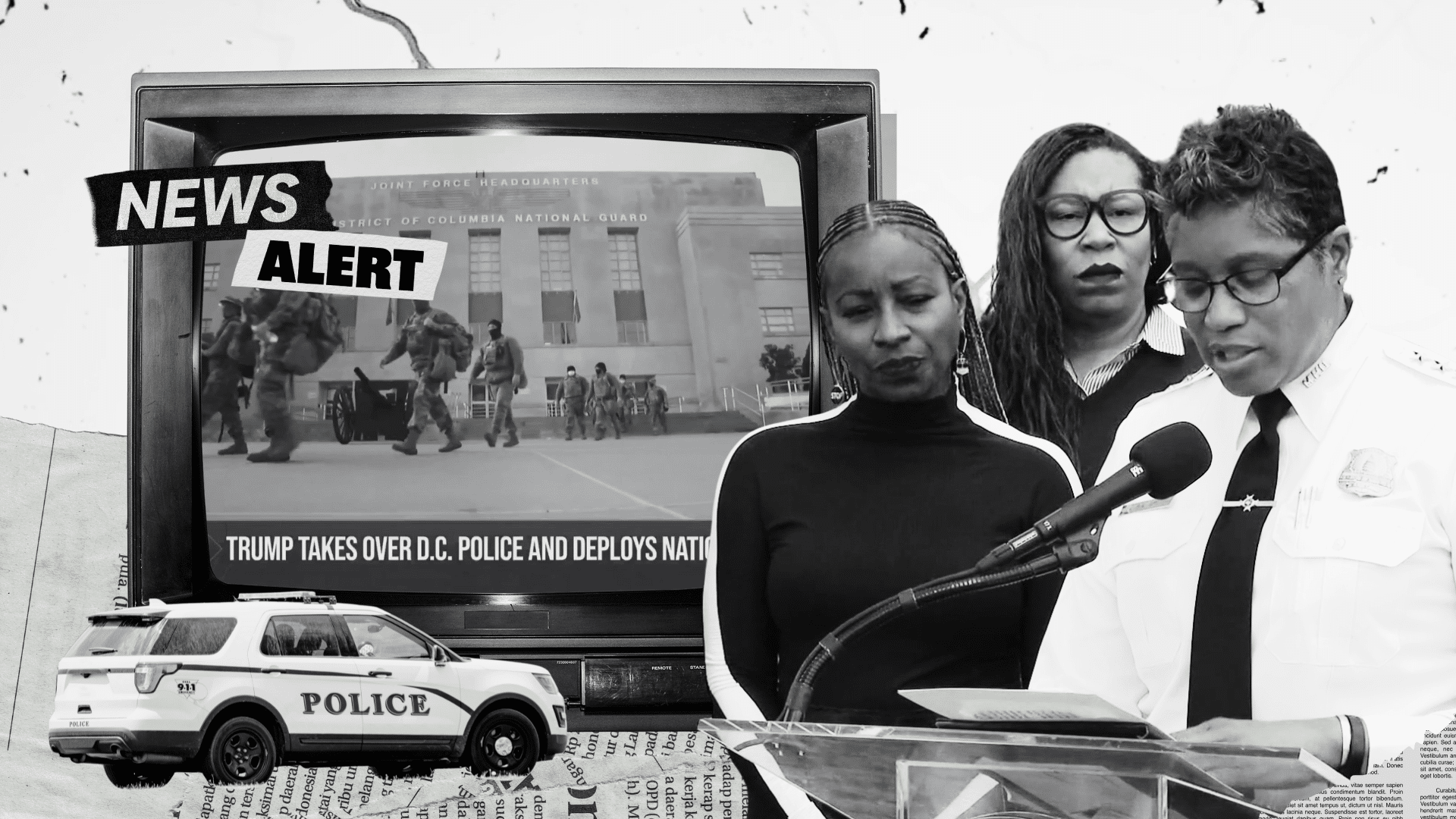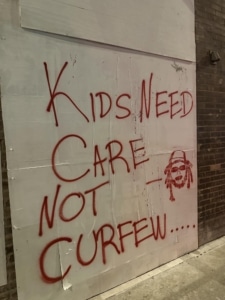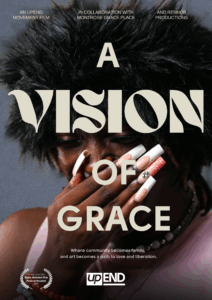DC’s Militarization Shows How Policing Targets Black Youth
August 15, 2025
August 15, 2025

by Maya Pendleton
This includes federalizing DC’s police force and deploying 800 National Guard troops, who arrived on Tuesday. Trump’s takeover of DC expands an authoritarian state using anti-Black logic under the guise of public safety. The stated justification for this takeover rests on inflammatory claims that DC “has been overtaken by violent gangs and bloodthirsty criminals, roving mobs of wild youth, drugged-out maniacs, and homeless people.” But this is not about safety.
This language is vile, racist, and it dehumanizes residents of the District, but the move to police and punish the city’s most vulnerable is not new. All summer, public discourse – online, from residents, and government officials – has been filled with alarmist “concern” about Black teenagers “taking over” the city. Local media and officials have painted these young people as inherently violent and dangerous, circulating reports of teenagers “overrunning” DC neighborhoods. The result has been heightened surveillance of teens in targeted neighborhoods and the imposition of curfews for DC teens in certain areas.

Graffiti seen in Union Market in Washington DC reads “Kids Need Care – Not Curfew…”
And the punitive approach doesn’t stop with youth. For years, the city has treated its homeless residents as problems to be removed, rather than people in need of care and support. The mayor’s responses have included “evicting” residents from encampments, ramping up criminalization of homelessness, and creating barricades to make it harder for unhoused people to find shelter.
In May 2025, the Democratic mayor even urged the city to overturn its sanctuary city law, which prohibits local law enforcement from assisting ICE. In short, DC’s leadership has spent years paving the way for this moment by laying the groundwork for Trump’s takeover and enabling the wholesale criminalization of the city’s residents by federal agents.
What’s happening in DC (now and before Trump’s actions) can be understood through Stuart Hall’s analysis in Policing the Crisis (1978). Hall and his co-authors show how the ruling class manufactures “moral panics” by amplifying sensationalized reports of crime to produce public fear. That fear is then used as a tool of social control to legitimize expanded policing, harsher punishment, and the surveillance of poor, racialized communities. In DC, the rhetoric about “violent gangs,” “roving mobs of youth,” and “drugged-out maniacs” follows this exact playbook. But, the crisis is not the alleged wave of crime, it’s the political project of disciplining and controlling marginalized communities under the guise of “public safety.” Already, the current “takeover” of DC has led to federal agents terrorizing DC’s majority Black neighborhoods.
The very existence of the family policing system rests on moral panics: narratives that poor Black families will harm their children if they are not surveilled or separated. Rather than offering care and support, the system weaponizes false stories about communities to justify violence against them.
In times like these, it’s essential to return to our abolitionist vision and the world we must work to build – our lives depend on it. Abolition teaches us that policing and prisons are not solutions; they are tools to manage the very crises that capitalism creates. Unhoused people are not a “problem” to be removed, they are living through one of capitalism’s most devastating consequences, and it is our collective responsibility to end a society that allows homelessness to exist at all. Black teenagers are not a threat. Children and youth deserve spaces where they can be free, safe, and able to thrive. The most common crimes DC’s youth are involved in are carjackings and robberies, actions that mostly damage property but, more importantly, reveal how capitalism creates the conditions for desperation. Harsh immigration policies do not keep anyone safe. Instead, we must address how the United States devastates other countries, fueling the social and economic conditions that force people to leave their homes in the first place.
Abolition offers us an analysis that goes far beyond Trump. While the current administration poses a grave threat, we must recognize that Trump is only able to wield these forces because they already exist. The infrastructure of policing, prisons, and surveillance is always a danger to our collective safety and well-being, no matter who is in power. Communities, especially poor, Black, immigrant, and unhoused communities, have lived under the threat of policing, violence, and criminalization long before this moment.
Right now, we must refuse the trap of moral panic. Capitalism wants us to fear one another, to accept policing and cages as “solutions,” and to disappear social problems rather than confront and end them. We can choose differently. We can choose to protect our neighbors, especially those most targeted. We can fight against policies and policing that harm our communities. We can choose not to police each other. Collectively, we can support mutual aid networks and resource those doing care work. We can commit to studying to deepen our political analysis and understanding of the world around us. Together, we can take meaningful steps, every day, to resist the violence of policing and to build the safety that comes from solidarity, not surveillance.
 Maya Pendleton has been a part of the upEND movement since its inception. She currently works as researcher and writer for the upEND movement, focusing on how we abolish the family policing system, the harms of the current system to children, families and communities, and the world we will build post family policing.
Maya Pendleton has been a part of the upEND movement since its inception. She currently works as researcher and writer for the upEND movement, focusing on how we abolish the family policing system, the harms of the current system to children, families and communities, and the world we will build post family policing.

“A Vision of Grace” is a short documentary following queer, Black youth in Houston who are building chosen family and mutual aid networks in the face of housing insecurity.